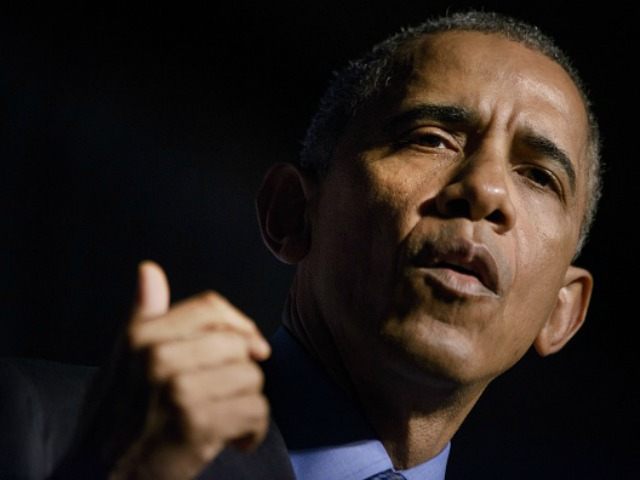White House officials are aggressively pushing back at FBI director James Comey’s remarkable—although indirect—public criticism of President Barack Obama’s crime policies.
The pushback may be working—Comey dropped some of the sharp criticisms from an Oct. 26 speech that he made the prior week.
In at least two speeches, Comey argues says tough sentencing takes criminals off the streets, reduces crimes, and saves lives, and that cops face increasing political and media pressure that can wreck their careers if they get caught up in a videotaped shooting or fight. The phrase he has adopted is that “part of the explanation [for increased crime] is a chill wind blowing through American law enforcement over the last year.”
The “chill wind… over the last year” is actually Obama’s strategy to stigmatize state and local police so they are overpowered by the federal Department of Justice’s “ObamaLaw” regulations. That political strategy combines media pressure with activist groups, such as the controversial Black Lives Matter movement.
The White House’s press secretary Josh Earnest led Obama’s pushback Oct. 26 by portraying Comey’s indirect criticism of the Obama’s policies as personal criticism of police officers.
The “evidence at this point does not support the notion that law enforcement officers around the country are shying away from fulfilling their responsibilities,” he said at the Monday press conference.
For emphasis, he then suggested that Comey believes cops are shirkers. “The evidence that we’ve seen so far doesn’t support the contention that law enforcement officials are somehow shirking their responsibility,” said Earnest.
In fact, Comey didn’t accuse police of offers of being shirkers or cowards.
Obama has defended the controversial Black Lives Matter group, which has worked with, or lauded, murderers. “Sometimes, like any of these loose organizations, some people pop off and say dumb things,” he said in October.
Obama’s ObamaLaw strategy, launched late 2014, is occurring simultaneously with a remarkable spike in murders and crime. Murders, for example, are now up 20 percent compared to 2014. That spike adds up to at least 500 dead Americans, including many African-Americans. The murders include a growing number of cops, such as the New York cop shot in October by a “non-violent” criminal who had been released by a lenient judge for drug treatment.
Obama’s allies are also releasing more than 40,000 criminals from jail.
The resulting crime spike is a big political problem for Democrats heading towards the 2016 election—but only if Republican leaders, such as Rep. Paul Ryan, drop their joint support of an Obama-backed congressional effort to sharply reduce mandatory-minimum prison sentences. Those penalties were imposed in the 1980s, and they successfully reversed most of the huge post-1961 rise in murder, drugs, and theft.
The crime spike was garishly displayed via Hollywood’s products, especially its vigilante movies—Dirty Harry, in 1971, Death Wish in 1974, and Taxi Driver in 1976. Crime reached such levels that the crime movies became cult-movies and science-fiction movies, such as The Warriors in 1979 and Escape From New York in 1981.
Obama’s willingness to fight Comey in public was also highlighted by the New York Times’s coverage, which relayed criticism of Comey from unnamed Obama aides.
Mr. Comey’s remarks angered Justice Department and White House officials, because they saw them as undermining the administration’s criminal justice policies. Holding the police accountable for civil rights violations has been a top priority for the Obama administration in recent years, and several officials privately fumed at the suggestion that criticizing the police had led to violent crime.
In Mr. Comey’s speech, he also appeared out of step with the administration over whether the imprisonment of thousands of criminals in the 1980s and 1990s — when there were high rates of crime in many cities — could be called “mass incarceration.”
In his Oct. 26 speech in Chicago, Comey partially bent under the pressure. He spoke only briefly about Obama’s effort to release many violent prisoners, and he spent more time saying he can’t prove his “chill wind” explanation.
But he repeated his use of his euphemistic explanation for the murder waves seen amid Obama’s strategy of boosting political and media pressure on cops. The crime rate is rising, and “part of the explanation is a chill wind blowing through American law enforcement over the last year,” Comey said Oct. 26.
Read more about Comey’s hard-hitting speeches here.

COMMENTS
Please let us know if you're having issues with commenting.